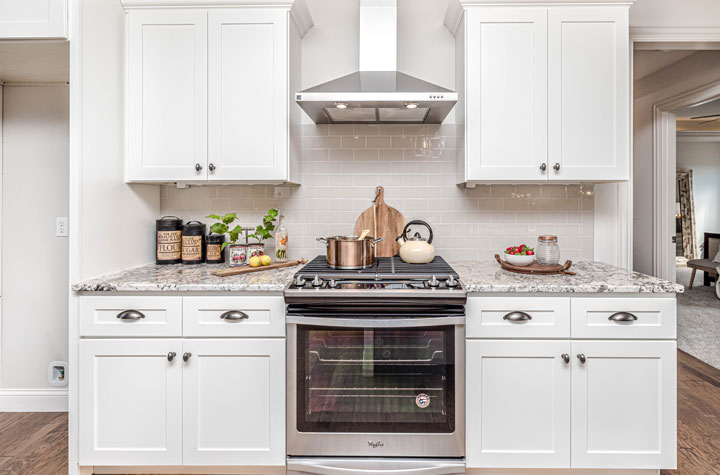
What is Carbon Monoxide?
Carbon monoxide (CO) is a colorless, odorless, and tasteless gas that can make you feel ill and can even cause death. It is produced when fuels are burned in vehicles, generators, stoves, fireplaces, gas appliances, and heating systems.
How Does Carbon Monoxide Affect Your Health?
Inhaling carbon monoxide can displace oxygen in your bloodstream, leading to symptoms like shortness of breath, headaches, dizziness, nausea, weakness.
How Does Carbon Monoxide Accumulate Indoors?
Carbon monoxide can build up in your home primarily due to improperly installed or poorly maintained appliances such as stoves and water heaters. Inadequate ventilation in gas or wood-burning fireplaces and appliances can also contribute to hazardous levels.

How Can You Safeguard Your Family?
- Install CO Alarms: Place battery-operated or battery backup carbon monoxide detectors near every sleeping area. Ensure they are not obstructed by furniture or curtains.
- Routine Battery Checks: When you adjust your clocks for daylight saving time in spring and fall, take the opportunity to check your CO detector batteries to ensure they’re working effectively.
- Consider Advanced Detectors: Look for detectors with a digital display that not only alerts you to CO levels but also shows the highest concentration recorded in your home.
- Regular Replacement: Follow the manufacturer’s guidelines for replacing your CO detectors, typically every five years. To help remember, set a reminder on your smartphone or calendar when you purchase and install a new unit.
- Proper Venting: Ensure that your gas appliances are properly vented. For instance, horizontal vent pipes, like those on water heaters, should have a slight upward angle towards the outdoors to prevent CO from leaking through any loose joints or fittings. If you are concerned about your home's heating, cooling, and ventilation system, give us a call today and one of our trained technicians will visit your home for an inspection.
- Choose Certified Equipment: When purchasing gas systems, only buy those that carry the seal of a recognized national testing agency, such as Underwriters' Laboratories.
- Avoid Using Gas Ovens for Heating: Never use a gas oven to heat your home, and refrain from cooking or burning anything on stoves or fireplaces that lack proper ventilation.
- Chimney Maintenance: Have your chimney inspected and cleaned annually. Blocked chimneys can trap CO inside your home or cabin.
- No Indoor Charcoal Burning: Never burn charcoal indoors, regardless of its color, as it produces harmful CO.
- Portable Equipment Caution: Do not use portable gas camp stoves or flameless chemical heaters indoors, as these can also emit dangerous levels of CO.
- Safe Generator Use: Always operate your generator outdoors, placing it at least 20 feet away from windows, doors, and vents to minimize the risk of CO exposure.
- Annual Maintenance: With a Peace of Mind Club membership, our team of trained technicians will visit your home to ensure they operate safely and efficiently.
Additional Safety Tips:
- Avoid covering the bottom of gas or propane ovens with foil, as this can obstruct airflow and lead to CO accumulation.
- Never leave your vehicle running in an enclosed garage. Be cautious with remote starts.
- Do not use charcoal grills, oil lanterns, or camping stoves indoors.
- Keep gas-powered equipment like generators outside and at least 20 feet away from any windows or doors.
- Always ensure the fireplace flue is open before use.
- After a winter storm, check that vents for your appliances are clear of snow.
What to Do if you Smell Gas?
- Address Gas Odors Promptly: If you detect any unusual smells from your gas furnace, hot water tank, or other appliances, immediately evacuate your home and call the gas company or emergency services. Once the gas company has confirmed it is safe to return, you can then contact our team at Armstrong Comfort Solutions to have a licensed plumber or trained HVAC technician visit your home to address any problems that may have caused the gas leak.
What to Do If the Alarm Activates?
- Don’t ignore the alarm! Immediately evacuate everyone from the house. Call 9-1-1 and remain outside until authorities declare it safe to return.
Stay safe and protect your home and loved ones from carbon monoxide hazards!
